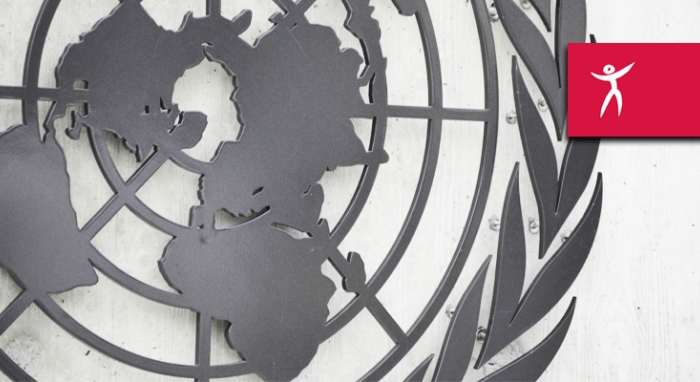
HRC34 | States and NGOs call for strengthened Universal Periodic Review
The third cycle of the Universal Periodic Review should be marked by an increased focus on the participation and protection of human rights defenders and other civil society actors, both in the process itself and through the implementation of recommendations at the national level.
The Human Rights Council’s 34th session formally marks the end of the second cycle of the Universal Periodic Review (UPR), a mechanism that has opened space for dialogue and in some instances contributed to the promotion and protection of human rights at the national level.
However, the UPR – a mechanism pursuant to which each States’ human rights situation is examined by all other UN Member States every five years – needs improvement. It lacks a formal follow-up mechanism, has procedural weaknesses, provides very limited scope for formal civil society participation, and overall implementation of recommendations is patchy.
The adoption at this Council session of the UPR reports of countries including Uganda, Zimbabwe, Venezuela and South Sudan as part of the UPR’s final session of its second cycle, provided an integral opportunity to discuss changes to strengthen the UPR going into its third cycle.
Pleasingly, during the Item 6 General Debate on the UPR at the Council, the United Kingdom (on behalf of Brazil, Morocco, Paraguay, along with 63 other States) did just that and delivered a joint statement setting out a range of proposals to strengthen the mechanism.
As well as recalling some of the UPR’s successes – such as twice achieving 100% participation from all UN Member States – the joint statement:
- Reaffirmed the commitment to ensuring all recommendations are precise, practical, constructive, forward looking and implementable.
- Highlighted the State under review’s responsibility to provide a clear response to each recommendation.
- Committed to exercising restraint on the number of recommendations made.
- Agreed to provide an update on progress achieved in the implementation of recommendations two and a half years after reviews through a mid-term report, or an alternative process.
- Committed to improving follow-up on recommendations made at the previous cycle, including by referring to, or reiterating previous recommendations when appropriate.
ISHR welcomes this move to strengthen the UPR, as well as the commitments made by the 67 States. ‘We are pleased that this joint statement echoes some of the calls made by ISHR in our strategy to strengthen the UPR’, said ISHR’s Programme Coordinator and Legal Counsel, Tess McEvoy. ‘By enhancing the clarity of recommendations and responses, these developments would improve the standard of State interaction with the mechanism’, McEvoy added.
In addition to the joint statement, ISHR welcomes comments by the EU, Switzerland, Georgia, Tunisia and Montenegro during the Item 6 General Debate that the involvement of NGOs and National Human Rights Institutions is valuable to UPR outcomes and crucial for follow-up processes and the implementation of recommendations.
‘Going in to the third cycle we hope to see a strengthened mechanism: a mechanism in which civil society and defenders are central; where they are able to contribute substantially to reviews and their implementation; and where outcomes have a more direct and positive impact on the behaviour of States and non-State actors through better implementation of recommendations.’ said McEvoy.
However, more needs to change before the UPR reaches its potential. In addition to the elements discussed by States during the UPR General Debate, ISHR’s strategy to strengthen the UPR also calls for:
- The development of a policy to prevent, investigate, remedy and promote accountability for intimidation and reprisals suffered by anyone for engaging with the UPR.
- Formal civil society participation, including the right to make statements, at the working group stage.
- Steps by OHCHR to follow up and monitor implementation of recommendations by States.
- The Council’s Item 6 General Debate to be used to monitor and report on the level of implementation of recommendations.
Contact: Tess McEvoy, [email protected]
